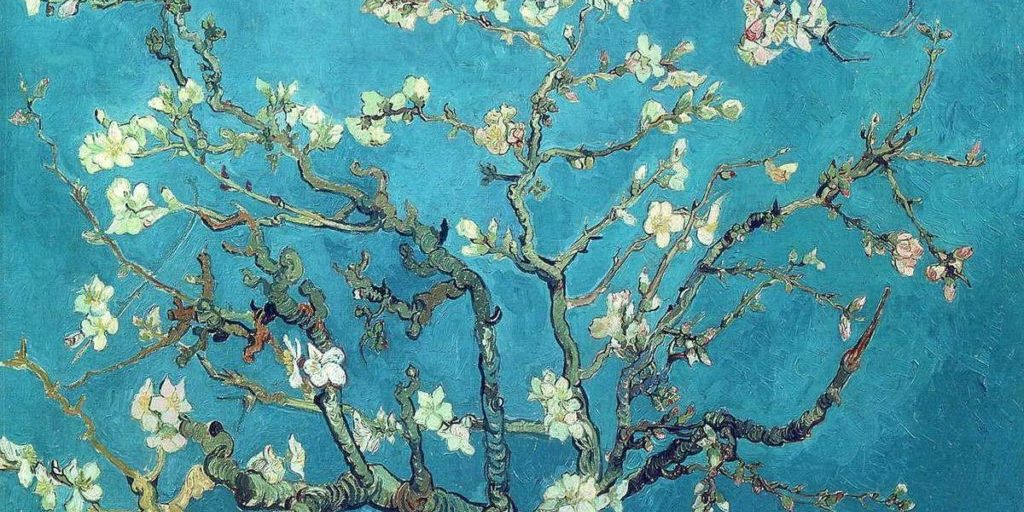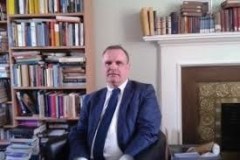
Why Pastors Should Engage Thomas Aquinas
Thomas’ early life was one of riches to rags. Born to nobility in southern Italy, he needed to escape to Paris and be trained as a Dominican, at the still new House of Studies there. Three years later, in 1248, he moved with his mentor Albert the Great to Cologne after the latter’s call to replicate the Dominican house. Thomas received grounding in Philosophy, mostly based on the philosophy of Aristotle, with a Neo-Platonic addition that would be significant in his theological imagination. By 1250 he had been ordained as a priest. He returned to Paris and between 1252 and 1256, Thomas was based at the Dominican House of St Jacques, a little out from the main conglomeration of study houses on the left bank of the Seine. Some controversy about political allegiances made him leave not long after he had become Master through teaching a full course of theology through the Sentences of Peter Lombard (the standard ‘textbook’).
Back in Italy, at Naples then Orvieto then Rome, it seemed that his calling was at first more philosophical (although with reference to themes of creation, providence, humanity) and then pastoral. The second, largest part of the Summa Theologiae is devoted to questions of ‘moral theology’, such as the difference between courage and foolhardiness: virtue is to be found in moderation between extremes, yet needs the framing and inspiration of the theological virtues of faith, hope and love.
In Rome, after finishing his Commentary on Dionysius’ Divine Names, and the De Potentia 1264 (dealing with divine power, creation and Trinity—developing and sharpening the first Summa –Summa Contra Gentes), he started work on the Summa theologiae in Rome at Santa Sabina during 1265. He returned to Paris as master in 1269. There he had some problems to address, as one who espoused Aristotle in a way that for his opposite number in the Franciscan Order, Bonaventura, seemed suspect. Thomas tended to allow for the eternity of the world, the necessity of ‘fate’ and the idea that all intellectual creatures share in one ‘Intellect’. Indeed, around this time Thomas wrote ‘ “that the world is not eternal” can only be held by faith and cannot be proven, just as with the Trinity’ (ST 1, Q46, a2). The Franciscan Pecham opposed this. Thomas himself answered that something’s being held on faith did not make it less true. His move in 1272 from Paris to the Dominican house of studies at Naples was no real promotion but a reaction to the unpopularity of his openness to certain views.
However, his worth was recognized in the Pope’s request that he write against the Greeks in defense of the filioque and related matters for the upcoming ecumenical council of Lyon, even though unlike Bonaventura whose gifts were also administrative, he was not made a cardinal. While sketching his theology of the eucharist as an extension of Christology [sacraments as the ‘relics of Christ’s passion’ which cause grace to be drawn out from the potential of the human being] he first suffered a stroke during Mass, set out for Lyon with his Contra errores Graecorum in February, but died on March 7 at Fossanova (Cistercian) abbey.
Head and Heart
A question arises here. How much was Thomas a ‘career academic’, dedicated to establishing ‘the truth’? And how much was his mission to serve God in and through serving the church? Thomas of course would distinguish these tasks while not separating them.
He was also famous for drawing distinctions: between being and existence, between the active and the contemplative life (Mary and Martha need each other, but Mary’s part is better), between nature and grace, between a number of causes which neither drew God down into being a player in the universe nor shut him out of it altogether.
Thomas’ theological intellect shined on doctrinal matters in countless ways. For example, his notion of the Trinity spoke of the three divine persons who are distinct in terms of their relations, existing in respect to each other while always being co-equal in divinity. One might say it is God’s way of existing, a triune way. Likewise, Thomas taught that the Incarnation can be thought of as divine and human sharing a common existence (esse), that is, that of the hypostasis, or personal subsistence of the eternal Son of God, the second person of the Trinity. Moreover, Thomas did not think that the more piety one had or aspired to, the less one should be clear about accuracy in the reception and transmission of truth, both doctrinal and spiritual-moral.
Questions, Objections, Answers
Another stand out feature in Thomas’s work was his growing use of a question and answer method. After setting out a thesis question, he invited students (and lay people where preaching could adopt some of this style) to raise objections or to sympathize with the objections of other teachers. Thomas would then give an objection to the objections followed by a response which would reinforce that to which the objections objected, with specific objections to the respective objections. Hence the very first article of the first question of the first part of the Summa Theologiae:
ARTICLE 1. Whether, besides philosophy, any further doctrine is required?
Objection 1: It seems that, besides philosophical science, we have no need of any further knowledge…
Objection 2: …there is a part of philosophy called theology, or the divine science, as Aristotle has proved (Metaph. vi). Therefore, besides philosophical science, there is no need of any further knowledge.
On the contrary, It is written (2 Tim. 3:16): “All Scripture, inspired of God is profitable to teach, to reprove, to correct, to instruct in justice.” Now Scripture, inspired of God, is no part of philosophical science, which has been built up by human reason.
I answer that, It was necessary for man’s salvation that there should be a knowledge revealed by God besides philosophical science built up by human reason. Firstly, indeed, because man is directed to God, as to an end that surpasses the grasp of his reason: “The eye hath not seen, O God, besides Thee, what things Thou hast prepared for them that wait for Thee” (Is. 66:4) (New Advent Translation)
This method might seem ‘clunky’ for the taste of many, but it does use questioning and reasoning but also Scripture (and sometimes the church fathers’ teaching) to help set the matter straight on how one might preach it. From his earliest time teaching as a Master, the Bible was the basic text for students to debate questions. The Lecture was the foundation; the disputation, the walls of the building; preaching was the roof for ‘cover’. Hence sacra doctrina rather is the ray of colorful light that happens when Revelation ‘shines through’ sacra scriptura.
Theological Achievement
These theological positions and arguments, along with his rich teaching on creation set out in the Summa Contra Gentiles, the earlier attempt at a ‘systematic theology’ in the early 1270s, have demonstrated his rightful place as a Master of Theology. Perhaps controversial yet for Protestants is his teaching on grace. This is connected to the pastoral nature of his theology which is in no sense an ‘extra’. The third part of the Summa Theologiae emphasizes Christ’s human life as one with which the believer identifies. Sanctification ends with glory to God. Yet this also means the church’s is to be stampled so deeply by divine love and grace, that one can speak of the church ‘meriting’ salvation. God is genuinely pleased with holiness, even if there would be no holiness without his own gracious gift, just as he is pleased with, even requires, prayer. Whether it is this theology or the abuses of this theology—in the practice of ‘good works’ in the sense of a quantifying to the point of an economy—in the late Middle Ages that the Reformers targeted is a moot point.
For Thomas, divine grace is a formal but not an efficient cause of salvation in a person. In other words, God does not play absolutely every role: the church, fellow believers and means of grace can play a crucial part as they participate in the gift. It is not that grace is in the air we breathe as creatures even if there is a natural capacity for grace, but grace is freely available in baptism, as Augustine also taught. There is a resultant stamp on the character, which may then lead to justifying grace (where the person consciously exercises faith), yet which affects the ‘unconscious’ part of the one baptized, imparting holiness from which one has to ‘opt out’. Meanwhile, Thomas’s writings on the eucharistic presence of Christ are sublime in the opinion of many to this day. Thomas teaches that the bodily form of the whole mystical body is spiritually made present to the people of faith.
Enduring Value for Pastors
Does Thomas have value for pastors today? Well, in preaching, the thesis and counter-thesis method is not only a rhetorical device for drawing in one’s listeners but can also help us achieve a deeper, firmer answer to the many doubts and fears churchgoers experience.
Also, Aquinas lived at a time when heretics were challenging the goodness of creation and affirming that salvation was about escaping this life. Thomas teaches us not to ignore creation in the name of some gospel of ‘newness’, but seek, as he did, to relate the gospel to the order of creation and human good, and for each to inform the other. Moreover, Thomas inspires us not to be afraid of philosophy but to be reasonably well read in the wisdom of the age, to sift it and sample it.
Lastly, as a practical discipline, one could do worse than take a Question from the Summa Theologiae, say from the Third Part on the mysteries of the life of Jesus Christ, and slowly work through it and be challenged and thrilled. Doing so will bring one to a deeper knowledge and devotion to the Lord Jesus.
Further reading
If you are interested in Thomas, where do you start? One could do worse than consider works by Leonard Boyle (The Setting of the Summa), and J.-P. Torrell (Saint Thomas Aquinas: Spiritual Master) as good places to start. The paraphrase of the Summa Theologiae (A Concise Translation by Timothy McDermott) in one volume is remarkably good.

